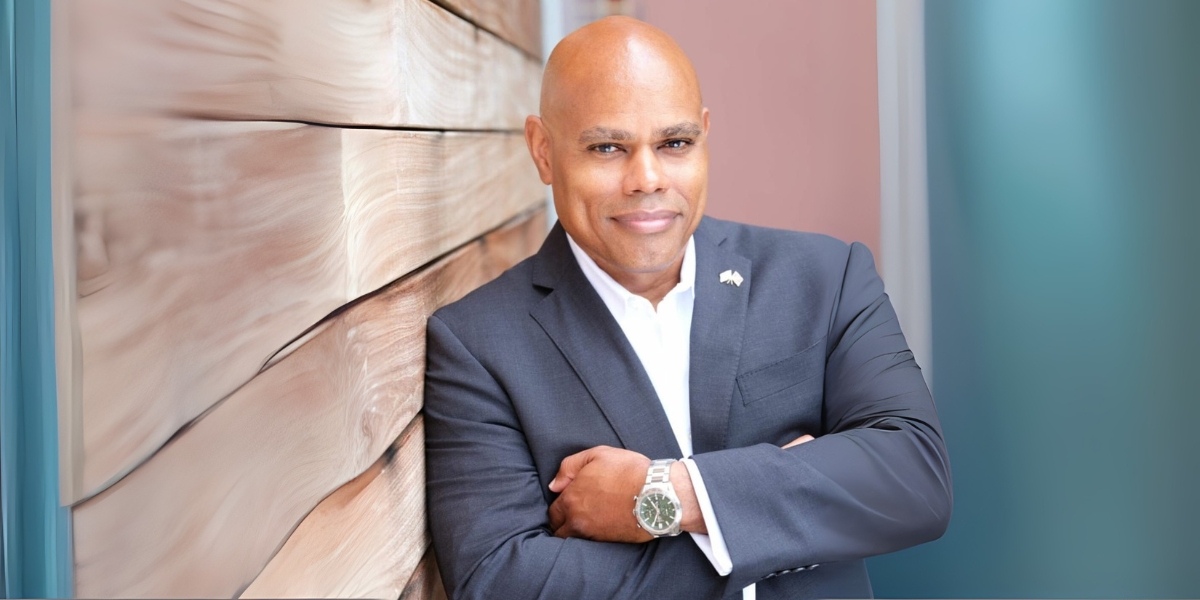By: SEO Mavens
Douglas Lemott Jr., currently serving as the Chief Information Security Officer (CISO) for the Analysis and Resilience Center for Systemic Risk, has spent over three decades in the cybersecurity and IT sectors. Before taking on his current role, Lemott was the VP of Security Operations and Deputy CISO at SAP National Security Services, where he developed advanced cybersecurity programs. His career is further enriched by his tenure as Director of Security and Compliance at VMware, a role he assumed after a distinguished 27-year service in the U.S. Marine Corps. Holding degrees in National Security Strategy and Computer Science, Douglas Lemott Jr.’s educational background is as robust as his professional experience.
This article presents an interview with Lemott, delving into his journey, insights, and views on the dynamic field of cybersecurity.
Early Career and Education
Can you share how your journey in cybersecurity began and what led you to this field?
I enlisted in the Marine Corps primarily to instill discipline in my life and earn the GI Bill to further my education. My initial plan was to complete my enlistment and pursue an engineering degree in college. However, while serving, I stumbled across an article about the U.S. Naval Academy in the base paper. It was a challenging opportunity that I couldn’t pass up. This marked the beginning of my journey in cybersecurity. The Naval Academy equipped me with an excellent education and leadership skills, which I continue to rely on today. Critical thinking and sound leadership are skills that have significantly shaped my career.
How did your time in the Marine Corps influence your approach to cybersecurity?
The Marine Corps taught me to manage networks and ensure their security, a fundamental skill in cybersecurity. Leading the Marine Corps Cyberspace Operations Group, I was responsible for securing the Marine Corps Enterprise Network. This experience honed my skills in managing defensive cyberspace operations to safeguard against threats. It also instilled a mindset of resilience and adaptability, traits that are crucial in the ever-evolving landscape of cybersecurity.
Insights on Cybersecurity Evolution
What are some of the significant changes you’ve observed in cybersecurity over the years?
Cybersecurity has transformed from a purely technical discipline into a strategic cornerstone of business and national security. When I started, it was primarily about defending perimeters and securing data. Now, it involves understanding the intersection between AI, geopolitics, and digital trust. The shift towards predictive and autonomous systems powered by AI is particularly noteworthy. It’s an exciting time as these systems adapt in real-time and anticipate threats that don’t follow known patterns.
Where do you see the cybersecurity field heading in the next decade?
The future of cybersecurity will see a deeper integration with business strategies and national security policies. Security will become more autonomous, focusing on predictive measures and self-healing systems. We’ll also see a shift from traditional password-based security to more advanced identity frameworks, such as zero-trust models. The geopolitical landscape will heavily influence cybersecurity strategies, necessitating close collaboration between governments and the private sector to manage emerging threats.
The DMV Region’s Role in Cybersecurity
Why is the DMV area a strategic location for cybersecurity professionals?
The DMV area, encompassing Washington D.C., Maryland, and Virginia, is a hub for innovation and opportunities in cybersecurity. It houses major defense contractors and cybersecurity firms, alongside pivotal entities like the Department of Homeland Security and the National Security Agency. This makes it an ideal place for anyone interested in cutting-edge technology and public service. The region’s rich cultural environment and proximity to policymakers provide a vibrant setting for meaningful work and career growth.
What advice would you give to someone looking to start their career in cybersecurity today?
Begin by establishing a solid technical foundation. Understand the basics of networks, protocols, and systems. Certifications can be valuable, but they should complement hands-on experience and expertise. I recommend setting up a home lab to practice and build a personal network through conferences and professional meetups. Finding a mentor can also be beneficial for navigating the field and opening up opportunities.
Balancing Work and Life
How do you maintain a work-life balance amidst the demanding nature of your field?
Recharging is crucial. I missed a lot of family milestones during my military career, so I make it a point to be present for my family now. Simple activities like taking my sons to practice or spending time with my wife are invaluable. I also prioritize physical exercise, which provides the energy and motivation I need to tackle daily challenges. These activities help me stay grounded and focused on what truly matters.
Douglas Lemott Jr.’s career is a testament to the evolving nature of cybersecurity and the integral role leadership and adaptability play in navigating this dynamic field. His journey from the Marine Corps to leading cybersecurity operations underscores the importance of education, continuous learning, and a strategic understanding of the cybersecurity landscape.
Achievements and Key Milestones
What single project or accomplishment do you consider most impactful in your professional life so far?
One of the most impactful accomplishments in my professional life was attending and graduating from the U.S. Naval Academy. I enlisted in the Marine Corps to gain necessary discipline, learn skills, and earn the GI Bill, which was intended for furthering my education. My plan was to complete my enlistment and pursue an engineering degree in college. I was unaware of the Naval Academy’s existence until I read an article in the base paper about available spots for active-duty sailors and Marines. It was the opportunity and challenge I was looking for, and the acceptance to the Naval Academy Preparatory School was a pivotal moment that instilled a profound sense of pride. The Naval Academy provided me with a tremendous education and leadership skills that I continue to rely upon today. Critical thinking and sound leadership are life-long skills that have made a positive difference in my personal and professional life.
Vision for the Future
What are some emerging trends in cybersecurity or national security that excite you most right now?
One of the most exciting trends is the convergence of artificial intelligence (AI) and cyber defense, particularly in autonomous threat detection and response. Traditional cybersecurity approaches are largely reactive, waiting for alerts to investigate and respond to. AI enables predictive threat intelligence, allowing models to analyze vast data streams in real time, flag anomalies, and recognize novel attack vectors before breaches occur. This proactive approach is essential as threats become more sophisticated. With AI, cybersecurity is shifting from reactive measures to more predictive and autonomous solutions.
Where do you see the cybersecurity and risk management field heading over the next decade?
Over the next decade, cybersecurity and risk management will become more deeply integrated with business strategies, national security, and emerging technologies. Security will transition from reactive controls to predictive and self-healing systems powered by AI and machine learning, enabling autonomous detection, response, and mitigation. This shift will enhance adaptability to threats that don’t follow known patterns. Additionally, there will be a focus on AI ethics, misuse prevention, and compliance. As AI embeds in decision-making systems, governing its behavior and protecting it from tampering will be crucial.
Personal Reflections and Advice
Is there a quote, principle, or idea that has consistently inspired you throughout your career?
A quote that has always inspired me is from Grace Hopper, a pioneering computer scientist and Navy Rear Admiral: “The most dangerous phrase in the language is, ‘We’ve always done it this way.’” This resonates with me because it underscores the importance of innovation and adaptability in cybersecurity. In a rapidly changing environment, sticking to traditional methods can be risky. This mindset encourages challenging existing processes and continually seeking improvements, which is essential for progress in cybersecurity.
What advice would you give to someone beginning a career in cybersecurity or defense technology?
Starting a career in cybersecurity or defense technology is exciting due to the growing demand and the dynamic challenges it presents. First, build a strong technical foundation by understanding networks, protocols, and operating systems. Seek appropriate certifications that align with your career ambitions, but don’t focus solely on accumulating credentials. Marry these with hands-on experience through internships or entry-level roles. Building a network by attending conferences and finding a mentor can also be invaluable in guiding your career path.
Summary
Douglas Lemott Jr.’s insights reveal a career marked by discipline, innovation, and leadership in the evolving landscape of cybersecurity. His experiences underscore the importance of continuous learning and adaptability, traits that are increasingly essential as the intersection of technology and national security becomes more complex. His vision for the future highlights the need to integrate AI-driven solutions and reevaluate traditional security strategies to address emerging threats.
Disclaimer: The views expressed in this article are those of Douglas Lemott Jr. and do not necessarily reflect the official policy or position of any agency or organization he is affiliated with. This article is for informational purposes only and should not be interpreted as professional advice.









